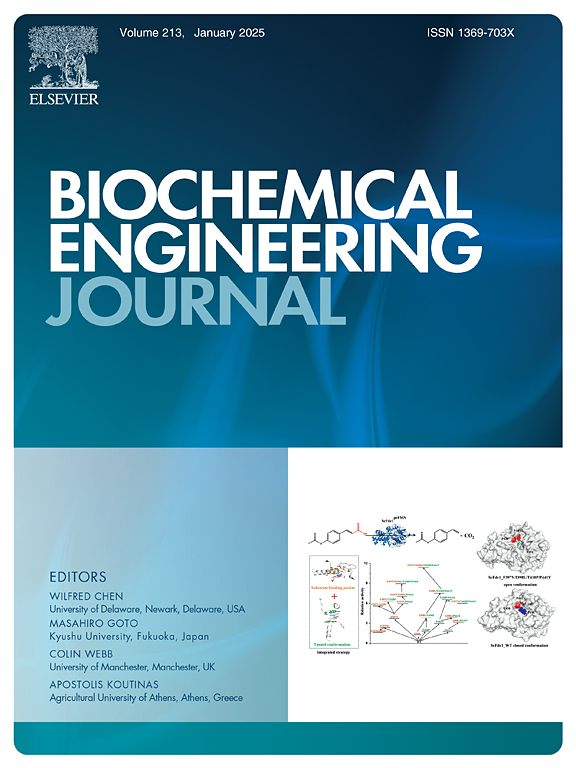Silk fibroin hydrogel loaded with mTOR inhibitor regulates chondrocyte autophagy to improve cartilage cell damage
IF 3.7
3区 生物学
Q2 BIOTECHNOLOGY & APPLIED MICROBIOLOGY
引用次数: 0
Abstract
Osteoarthritis (OA) is a common degenerative joint disease affecting cartilage, leading to symptoms such as pain, swelling, stiffness, and impaired joint mobility. The autophagy mechanism is considered to have great potential in improving cartilage damage. Enhancing autophagy in chondrocytes can alleviate joint inflammation and slow down the progression of OA. The mTOR inhibitor Rapamycin has been shown to block the mTOR pathway and promote cellular autophagy. We designed a silk fibroin hydrogel loaded with an mTOR inhibitor. The study indicated that this drug hydrogel exhibited excellent biocompatibility and cellular uptake. Furthermore, experiments in vivo and in vitro demonstrated significant anti-inflammatory effects, reducing cellular inflammation levels and improving the extent of cartilage cell damage. Moreover, this study elucidated that our designed drug hydrogel regulated the autophagy mechanism by upregulating the expression of ATG5-ATG12.
负载mTOR抑制剂的丝素蛋白水凝胶调节软骨细胞自噬,改善软骨细胞损伤
骨关节炎(OA)是一种常见的影响软骨的退行性关节疾病,导致疼痛、肿胀、僵硬和关节活动能力受损等症状。自噬机制被认为在改善软骨损伤方面具有很大的潜力。增强软骨细胞自噬可减轻关节炎症,减缓骨性关节炎的进展。mTOR抑制剂雷帕霉素已被证明可以阻断mTOR通路并促进细胞自噬。我们设计了一种装载mTOR抑制剂的丝素水凝胶。研究表明,该药物水凝胶具有良好的生物相容性和细胞摄取性。此外,体内和体外实验均显示出显著的抗炎作用,可降低细胞炎症水平,改善软骨细胞损伤程度。此外,本研究阐明了我们设计的药物水凝胶通过上调ATG5-ATG12的表达来调节自噬机制。
本文章由计算机程序翻译,如有差异,请以英文原文为准。
求助全文
约1分钟内获得全文
求助全文
来源期刊

Biochemical Engineering Journal
工程技术-工程:化工
CiteScore
7.10
自引率
5.10%
发文量
380
审稿时长
34 days
期刊介绍:
The Biochemical Engineering Journal aims to promote progress in the crucial chemical engineering aspects of the development of biological processes associated with everything from raw materials preparation to product recovery relevant to industries as diverse as medical/healthcare, industrial biotechnology, and environmental biotechnology.
The Journal welcomes full length original research papers, short communications, and review papers* in the following research fields:
Biocatalysis (enzyme or microbial) and biotransformations, including immobilized biocatalyst preparation and kinetics
Biosensors and Biodevices including biofabrication and novel fuel cell development
Bioseparations including scale-up and protein refolding/renaturation
Environmental Bioengineering including bioconversion, bioremediation, and microbial fuel cells
Bioreactor Systems including characterization, optimization and scale-up
Bioresources and Biorefinery Engineering including biomass conversion, biofuels, bioenergy, and optimization
Industrial Biotechnology including specialty chemicals, platform chemicals and neutraceuticals
Biomaterials and Tissue Engineering including bioartificial organs, cell encapsulation, and controlled release
Cell Culture Engineering (plant, animal or insect cells) including viral vectors, monoclonal antibodies, recombinant proteins, vaccines, and secondary metabolites
Cell Therapies and Stem Cells including pluripotent, mesenchymal and hematopoietic stem cells; immunotherapies; tissue-specific differentiation; and cryopreservation
Metabolic Engineering, Systems and Synthetic Biology including OMICS, bioinformatics, in silico biology, and metabolic flux analysis
Protein Engineering including enzyme engineering and directed evolution.
 求助内容:
求助内容: 应助结果提醒方式:
应助结果提醒方式:


